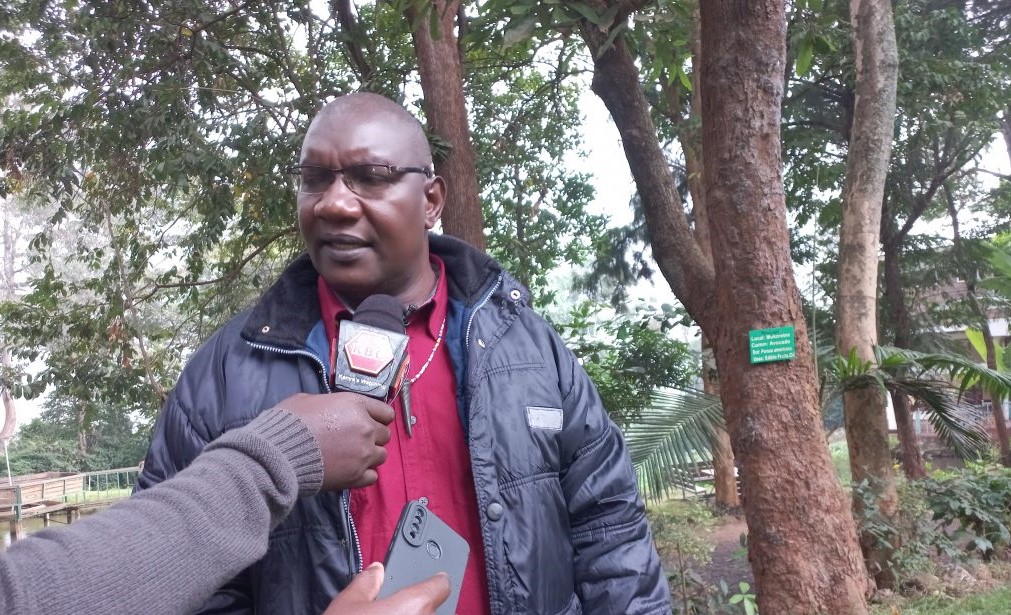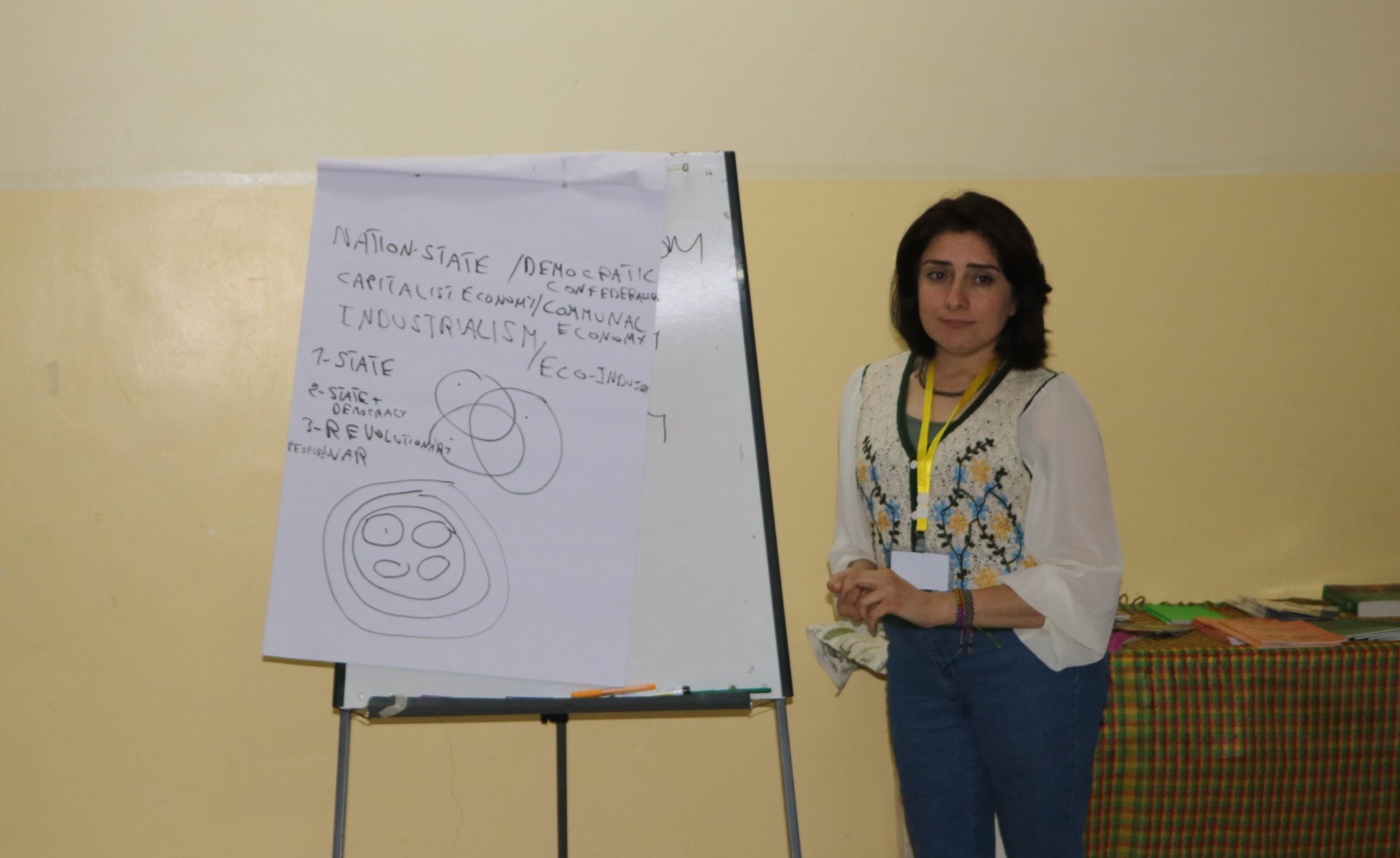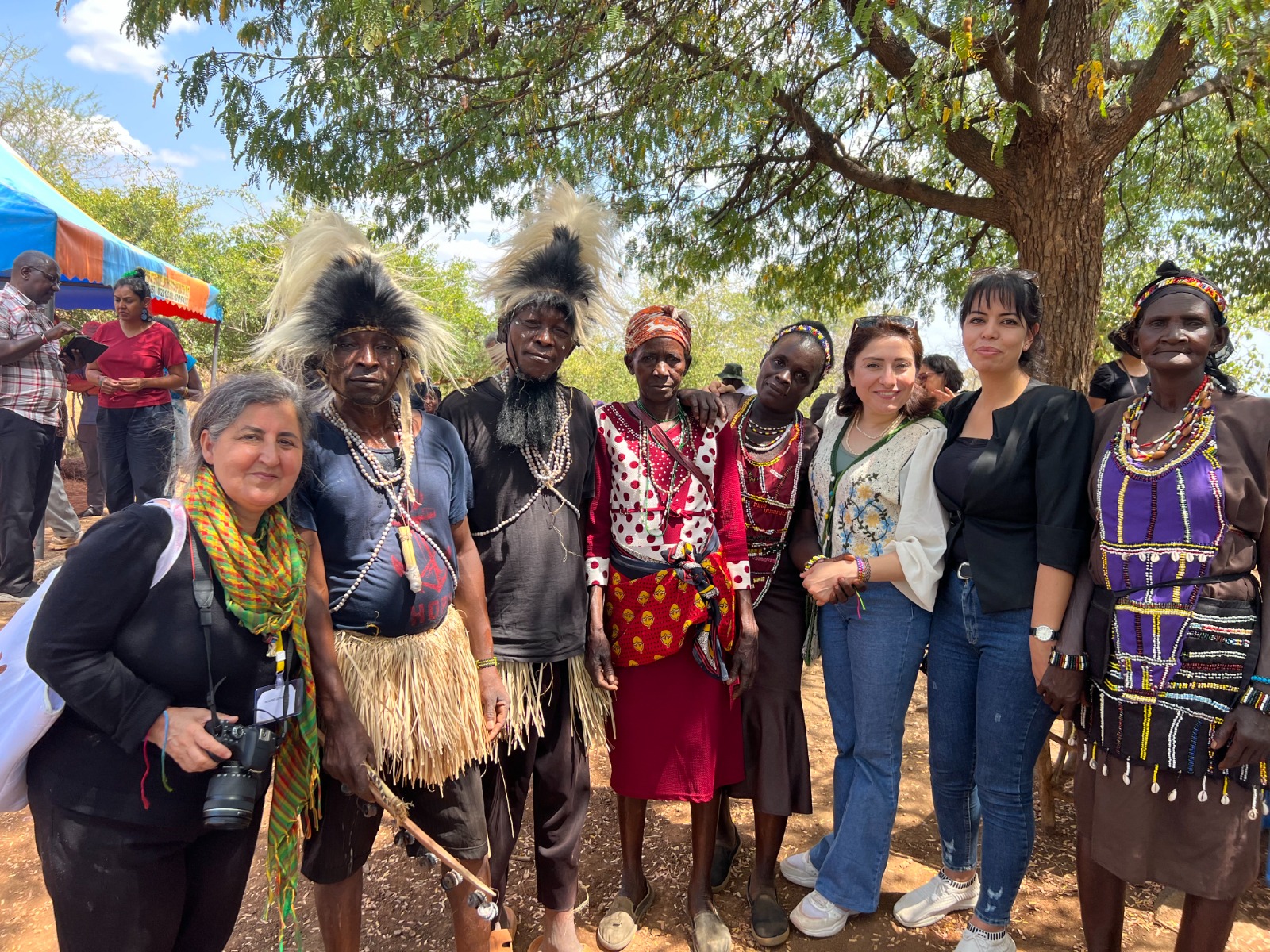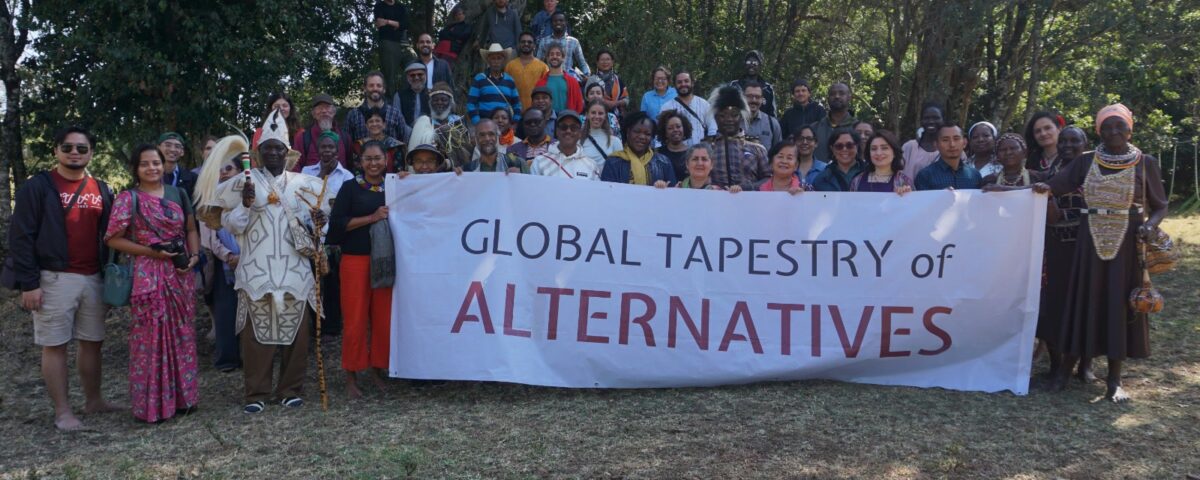Exhibition of Female plastic Artists from Rojava and Bashur in Sulaymaniyah City
July 21, 2023Agreement between Rojava University &Sociology Department in Binghamton University
September 19, 2023
Global Tapestry of Alternatives: A Gathering of Movements from Around the World
Representatives of 22 countries around the world, who are members and main supporters of the Global Tapestry of Alternatives (GTA), held their first physical meeting in Kenya to share their views and experiences and discuss the crisis of centralized systems.
The meeting, which was hosted by the organization “Society for Alternative Education and Transformation-SALT”, started at the “Bantu Mountain Lodge” near the town of Nanyuki in the foothills of Mount Kenya from August 8th to the 14th. continued many activities, workshops and free discussions along with a tour of the region for six days. Participants from all over the world shared their experiences from different countries and geographies.
The Global Tapestry of Alternatives-GTA has so far held 11 online meetings and held its first physical meeting between August 8-14 with the presence of more than 60 people. Most of the participants were from countries in the south of the world such as Latin America, Africa, South Asia, India, as well as from the Middle East and Kurdistan (North and East Syria).
The spokesperson of the Indian Vikalp Sangam organization, Ashish Kothari, said that this gathering from all over the world has a historical importance, because every society faces different crises, but at the same time they are all together, are facing common crises. Kothari continued as follows in his speech at the opening of the meeting; “The problems brought by capitalism are innumerable, we need solidarity and mutual support to raise the level of resistance and struggle and to find effective alternatives. We may be very different from each other, but this increases the richness of values, we all believe in the diversity of cultures, languages and societies. We all believe that we are a part of nature and we must protect nature and life, that’s why we came together and support each other”.

The head of the SALT organization “Simon Mitambo”, whose organization hosted the meeting, stated that they want to work with the local communities to strengthen them and build their autonomy, make their own decisions, as a bottom-up model, to be built up. Mitambo emphasized that their organization works with indigenous and regional knowledge systems, developing activities for the revival of different cultures and indigenous cultures.

The meeting of movements from all over the world in the GTA Community created a framework for building solidarity, harmony, exchange of experiences, learning and strengthening relationships between movements and people who believe in life outside the centralized systems.
The Global Tapestry of Alternatives-GTA, established in 2019, consists of four network members, 76 supporters and 67 independent individuals, who all represent alternative organizations, movements, academies, foundations, institutions and institutions in their regions and around the world, including the Academy of Jineoloji, the Academy of Democratic Modernity and Civil Diplomacy Center of Rojava/NES are part of the supporters. It is an initiative or a process under the umbrella of four organizations (Vikalp Sangam of India, Crianza Mutua of Colombia and Crianza Mutua of Mexico, MASA of South Asian countries). The topic focuses on agriculture, energy, self-management, food sovereignty, resources, knowledge and information with a new paradigm to rebuild the relationship between man and nature, man and society on the basis of freedom, equality and social justice.
GTA radically criticizes capitalism, individualism, racism, colonialism, nation-state, state hegemony, anthropocentric mentality. On the other hand, it introduces local, regional and global initiatives to each other, in order to learn from each other and develop joint activities and, if necessary, constructively criticize and correct each other, and be a place of inspiration to strengthen existing initiatives and other people. encourage the formation of their own initiatives to continue the struggle against the central consciousness.

In the meeting, the representatives of the Academy of Jineoloji presented the need for women’s science as a radical criticism of social sciences and shared their views on history, system crises, social and political crises and how to develop the ground of the second revolution of women, villages and agriculture. The topic was presented by the members of the Academy of Jineoloji, Zehide Mamo and Najibe Qeredagi. They also paid attention to the Jineolojical point of view on the fundamental causes of the crisis of the system and the struggle of the Kurdistan Women’s Freedom Movement to build a free life based on the concept of a Democratic Nation and Free Coexistence. The concept of killing masculinity and free cohabitation attracted the attention of the participants and many of the participants requested that the Academy of Jineoloji come to their countries and hold special meetings and panels on Jineoloji.

In the same meeting, the spokesperson of the Civil Diplomacy Center of North and East Syria, Nourshan Hussein, presented a seminar on the Rojava revolution and drew attention to the Democratic Self-Government, along with institutions and civil society organizations that were established for the community and from the nature of the community, which It is built on the basis of direct and radical democracy, ecology and women’s freedom.
At the same time, Nourshan Hussein drew attention to the attacks and threats of the Turkish state and the siege that is being experienced in North and East Syria and pointed out the importance of solidarity and support of communities and autonomous movements and administrations in the world.
Nourshan Hussein talked about the importance of building communes, municipalities and local councils, as well as women’s autonomous institutions and the level of the women’s self-defense system and changing the awareness of society through changing laws related to women’s and family rights, which creates a historical transformation in society.

The representative of the Academy of Democratic Modernity also presented about Democratic Confederalism and the search for a strong alternative outside the central system, which is the 50-year experience of the Kurdistan Freedom Movement, and said that the inventor of this philosophy and paradigm is the freedom leader Abdullah Ocalan.
After the meeting, members of the GTA worked with regional and local dynamics in a wide network to learn from each other and exchange knowledge and experiences.
After four days of meetings on these issues, the participants discussed the regulation, organization, GTA process and its future projects and activities.
On the last day of the meeting, a women’s council was established on the proposal of the Academy of Jineoloji and the need for women to organize themselves together was discussed and they will meet face to face and define their agenda.
Four days after the meeting, the participants visited several local communities, such as the Taraka and Ngwise tribes, and learned first-hand how they rely on their own resources and methods and preserve their culture and traditions. The delegation was welcomed with special ceremonies and traditions of these communities and tribes.

On the other hand, on behalf of the Academy of Jineoloji and the village of Jinwar Najibe Qeredagi and with the presence of some GTA members, they visited the village of Umoja in the “Samburu” region of Kenya. The citizens of the village, who were about 45 women and children, expressed their happiness.
The delegation of the Academy of Jineoloji and the village of Jinwar presented some symbolic gifts to the village and the Academy of Jineoloji.
Umoja Village has been built and run entirely by women for 32 years. Women who have faced violence and those who are outside the system are looking for an alternative life and want to live with their strength, will organize and manage themselves in that village.











